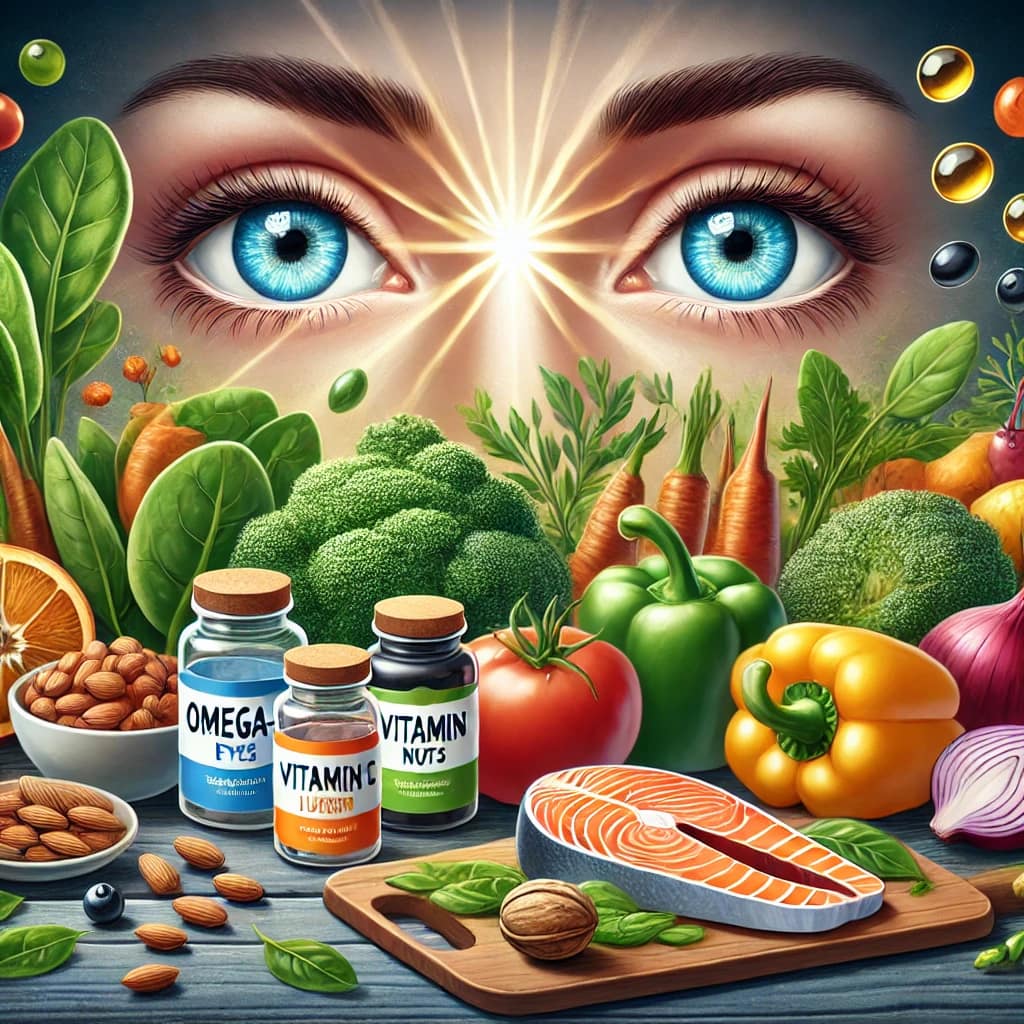
Eye treatment, food and supplements for top health
Eye treatment, food and supplements for top health
Eye treatment
It looks like you are seeking advice from a group of top eye specialists and surgeons for eye treatment and health. Whether you’re a patient considering eye surgery or a healthcare professional coordinating care, I can offer some general guidance based on common practices among experts.
Here are some key points to keep in mind regarding eye treatment and health:
1. Diagnosis and Second Opinions
- Precise Diagnosis: Before making any decisions, ensure that a comprehensive eye examination has been performed. This includes tests for vision, eye pressure, retina health, and overall eye function.
- Second Opinion: If the diagnosis is complex or the recommended treatment involves surgery, it is always a good idea to seek a second opinion, especially from a specialist in the specific condition (e.g., glaucoma specialist, retinal surgeon).
2. Surgical Considerations
- Understand the Procedure: Different eye surgeries, such as cataract surgery, LASIK, or retinal surgery, come with unique risks and benefits. Be sure to understand the specific procedure you are considering, its success rate, recovery time, and potential complications.
- Minimally Invasive Techniques: Modern eye surgeries often use advanced, minimally invasive techniques. Ask your surgeon whether they employ the latest technology, such as femtosecond lasers for cataracts or minimally invasive glaucoma surgery (MIGS).
3. Technology and Expertise
- Cutting-Edge Technology: Ask about the equipment and technology being used. Top eye specialists usually have access to state-of-the-art diagnostic and surgical tools, like optical coherence tomography (OCT) and advanced laser systems.
- Experience of Surgeon: Ensure your surgeon has extensive experience with the specific procedure you need. Surgeons who have performed thousands of similar surgeries tend to have better outcomes.
4. Post-Surgical Care
- Post-Surgery Recovery Plan: Post-operative care is crucial for a successful recovery. Follow-up visits should be scheduled to monitor healing, and it is important to adhere to prescribed medications (such as eye drops) and precautions to avoid infections.
- Realistic Expectations: Even with highly skilled specialists, not all surgeries result in perfect vision. Set realistic goals with your surgeon and understand any potential limitations.
5. Innovative Treatments
- Gene Therapy and Stem Cells: In cases of retinal diseases or other complex eye conditions, ask about innovative treatments like gene therapy, stem cell therapy, or the use of biological scaffolds for corneal repair.
- Clinical Trials: If the condition is rare or has limited treatment options, you might want to inquire about clinical trials or experimental treatments being tested.
6. Choosing the Right Team
- Multi-Disciplinary Approach: For complex cases, it may be worth finding a clinic or hospital with a multi-disciplinary team of ophthalmologists, optometrists, and surgeons working together. This collaborative approach can ensure comprehensive care.
- Credentials and Certifications: Ensure that the specialists and surgeons you consult are board-certified and have a track record of excellence in their field.
7. Patient Testimonials and Case Studies
- Patient Outcomes: Before deciding, look into patient testimonials or case studies from the clinic or specialist. This can provide insight into the level of care and success rates of their surgeries.
- Specialty Clinics: Some conditions may require treatment at specialty clinics, such as corneal transplant centers or pediatric ophthalmology units, for more complex or rare disorders.
8. Ethical and Holistic Consideration
- Patient-Centered Care: The best eye care teams consider the patient’s lifestyle, concerns, and goals when making recommendations. Ensure your specialist takes time to address your questions and concerns fully.
- Long-Term Monitoring: For chronic eye conditions, such as macular degeneration or diabetic retinopathy, long-term monitoring is critical. Consider a specialist who offers comprehensive, ongoing care plans.
Would you like more detailed information on a specific eye condition, surgery, or technological advancement? Make sure to ask your eye doctor or specialist.
Eye foods and supplements
Certain foods and supplements can play an important role in supporting eye health and may help prevent or slow the progression of eye conditions like age-related macular degeneration (AMD), cataracts, and dry eyes. Here are some of the best nutrients and supplements that are widely recommended for maintaining healthy eyes:
1. Lutein and Zeaxanthin
- Benefits: These are carotenoids found in the retina that help filter harmful blue light and protect against macular degeneration.
- Sources: Green leafy vegetables like kale, spinach, and collard greens, as well as broccoli, corn, and eggs.
- Supplements: Lutein and zeaxanthin supplements are widely available and often included in formulations for eye health.
2. Omega-3 Fatty Acids (EPA & DHA)
- Benefits: Omega-3s are essential for retinal health and can help reduce inflammation, particularly in conditions like dry eye syndrome and macular degeneration.
- Sources: Fatty fish like salmon, mackerel, sardines, and anchovies are excellent sources. Chia seeds, flaxseeds, and walnuts also contain omega-3s, though plant-based sources have a different form (ALA).
- Supplements: Fish oil supplements or vegan algae-based omega-3 supplements are great for getting sufficient EPA and DHA.
3. Vitamin A and Beta-Carotene
- Benefits: Vitamin A is crucial for good vision, particularly for night vision, and it helps prevent dry eyes and cataracts. Beta-carotene is a precursor to vitamin A.
- Sources: Carrots, sweet potatoes, spinach, kale, and bell peppers are high in beta-carotene. Eggs and dairy products also contain vitamin A.
- Supplements: Multivitamins often include vitamin A, but it’s important not to take too much, as high doses can be toxic.
4. Vitamin C (Ascorbic Acid)
- Benefits: Vitamin C is an antioxidant that helps protect the eyes from oxidative stress, which can contribute to cataracts and macular degeneration.
- Sources: Citrus fruits like oranges, grapefruit, strawberries, and vegetables such as broccoli, bell peppers, and tomatoes.
- Supplements: Vitamin C is readily available as a supplement and is often included in eye health formulas.
5. Vitamin E
- Benefits: Vitamin E is another powerful antioxidant that helps prevent cataracts and protects the eyes from oxidative damage.
- Sources: Almonds, sunflower seeds, hazelnuts, wheat germ oil, and spinach are rich in vitamin E.
- Supplements: Many multivitamins or specialized eye supplements contain vitamin E.
6. Zinc
- Benefits: Zinc is important for the health of the retina and helps vitamin A produce melanin, a protective pigment in the eyes. It’s essential for slowing the progression of macular degeneration.
- Sources: Oysters, as well as red meat, poultry, beans, nuts, and whole grains, are good sources of zinc.
- Supplements: Zinc supplements are available, and it’s often included in formulas designed for age-related eye concerns.
7. B Vitamins (B6, B9, and B12)
- Benefits: B vitamins help reduce homocysteine levels, an amino acid linked to inflammation and an increased risk of macular degeneration.
- Sources: Whole grains, meat, eggs, dairy, and leafy greens are common sources of B vitamins.
- Supplements: A B-complex vitamin supplement can help ensure you’re getting adequate amounts of these key nutrients.
8. Astaxanthin
- Benefits: Astaxanthin is a potent antioxidant found in algae and certain seafood. It has shown promise in protecting against oxidative damage, reducing eye fatigue, and preventing conditions like macular degeneration and cataracts.
- Sources: Salmon, shrimp, and krill.
- Supplements: Astaxanthin is available as a supplement, often included in formulations for eye health.
9. Curcumin (from Turmeric)
- Benefits: Curcumin is the active ingredient in turmeric and has anti-inflammatory properties. It may help in preventing cataracts and managing inflammation related to eye diseases.
- Sources: Turmeric spice.
- Supplements: Curcumin supplements, particularly with black pepper (piperine) for better absorption, can be used to reduce inflammation.
10. Ginkgo Biloba
- Benefits: Ginkgo biloba has been shown to improve blood circulation, which can help the retina and optic nerve function better. Some studies suggest it may aid in conditions like glaucoma or diabetic retinopathy.
- Supplements: Available as a supplement, typically used for improving circulation.
Formulated Eye Supplements
Many eye supplements combine some of the above nutrients in specific ratios. Some common formulations are based on the AREDS2 study, which showed that a specific combination of vitamins and minerals could reduce the risk of advanced age-related macular degeneration. The AREDS2 formula typically includes:
- Vitamin C (500 mg)
- Vitamin E (400 IU)
- Zinc (80 mg)
- Copper (2 mg, to prevent copper deficiency from high zinc)
- Lutein (10 mg)
- Zeaxanthin (2 mg)
These supplements are especially recommended for people at risk of or experiencing macular degeneration.
Additional Lifestyle Tips for Eye Health
- Hydration: Staying hydrated is essential for overall eye health, especially for conditions like dry eye.
- UV Protection: Wearing sunglasses that block 100% of UV rays can help prevent cataracts and other sun-related eye damage.
- Balanced Diet: Eating a diet rich in fruits, vegetables, whole grains, and lean proteins helps ensure you get a variety of eye-protective nutrients naturally.
Before starting any new supplements, it’s a good idea to consult with your eye doctor, especially if you have specific eye conditions or take medications.
Thank you for reading, comments and shares!
Create your own website
And learn how to monetize it
Heads up! If you’re looking to join Wealthy Affiliate, make sure you sign up using my referral link to get access to my personal coaching and all WA features."







